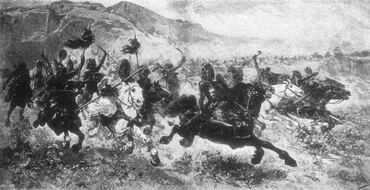Enemy

An enemy in the Bible refers to people who are in the love of evil and the false thinking that springs from evil. On a deeper level it refers to the forces of hell itself, and on an abstract level it refers to evil itself and falsity itself – which are, obviously, the ultimate enemies we have to fight.
(Notae: Apocalypse Explained 671; Arcana Coelestia 2851 [1-15], 8282, 8289, 9255 [1-2], 9313)
Arcana Coelestia #8289
8289. 'The enemy said' means the thought of those ruled by evils and the falsities arising from them, before the Lord's Coming. This is clear from the meaning of 'said' as thought, as in 3395, 7244, 7937; and from the meaning of 'the enemy' as those ruled by evils and falsities, since no others are meant in the spiritual sense by 'the enemy', 8282. The reason why their thought before the Lord's Coming is meant is that the hellish crew were prowling around at that time in almost complete freedom, molesting all who were there and trying to place them in subjection. Their thought at that time is described in the present verse by 'I will pursue, I will overtake, I will divide the spoil; my soul will be filled. I will unsheathe the sword, my hand will drive them out'. But when the Lord came into the world their boasting was changed to lamentation, described in the verse immediately following by 'You blew with Your wind, the sea covered them over; they sought a deep place like lead in the mighty waters'. Regarding their change of state brought about by the Lord's Coming, see 6854, 6914, 7091, 7828, 7932, 8018, 8054.






